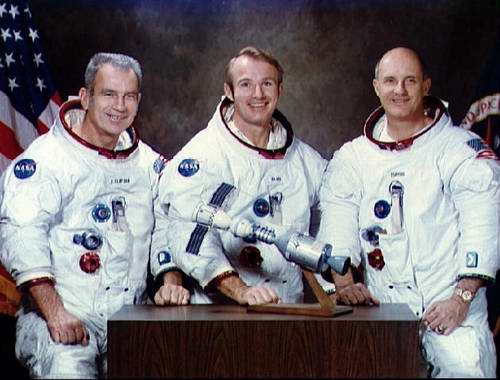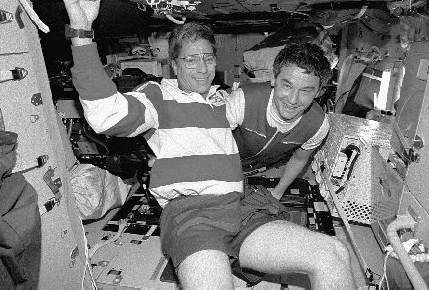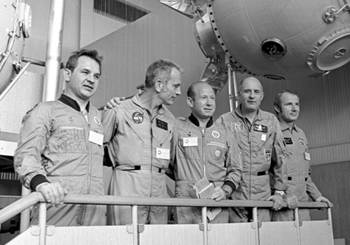Outer space travel feelings and facts guide
 [an error occurred while processing this directive]
[an error occurred while processing this directive]
Space travel problems
Psychological compatibility of the crew members during outer space travel. Part 1
Psychological compatibility of the members of a space crew is a factor of paramount importance for long outer space missions, because their efficiency in the execution of the space flight programme depends on it, though it is not so important in short space flights.

Since space missions are not frequent, specialists believe that it is permissible and even useful for short space flights to form a crew of people who do not like one another. The main thing here is that they should accomplish their task. However, this approach is totally unacceptable when a crew is selected for a long outer space mission.

A space crew of two or three people have to live and work together in isolation from the outside world. Since astronauts are human beings, they have individual inclinations and weaknesses. Each of them has a background of opinions and convictions. Astronauts have not been trained as teachers or psychologists, therefore their relations may, in principle, be determined by unpredictable factors both on the ground and in outer space.

For instance, in 1968, as the end of the mission of the US Apollo-7 spaceship was coming near, the astronauts developed a neurasthenic syndrome. Astronauts started to argue not only among themselves, but also with the operators of the ground mission control stations. Defying instructions all the spaceship crew members removed the sensors registering their physiological data and refused to discuss the matter with the mission control center.
Psychological compatibility of spaceship crew members Part 2
Alex Grachov, Sergey Kozin Copyright © 2007 – 2012 Spacefeelings.com. All rights reserved. Copyright/IP Policy.